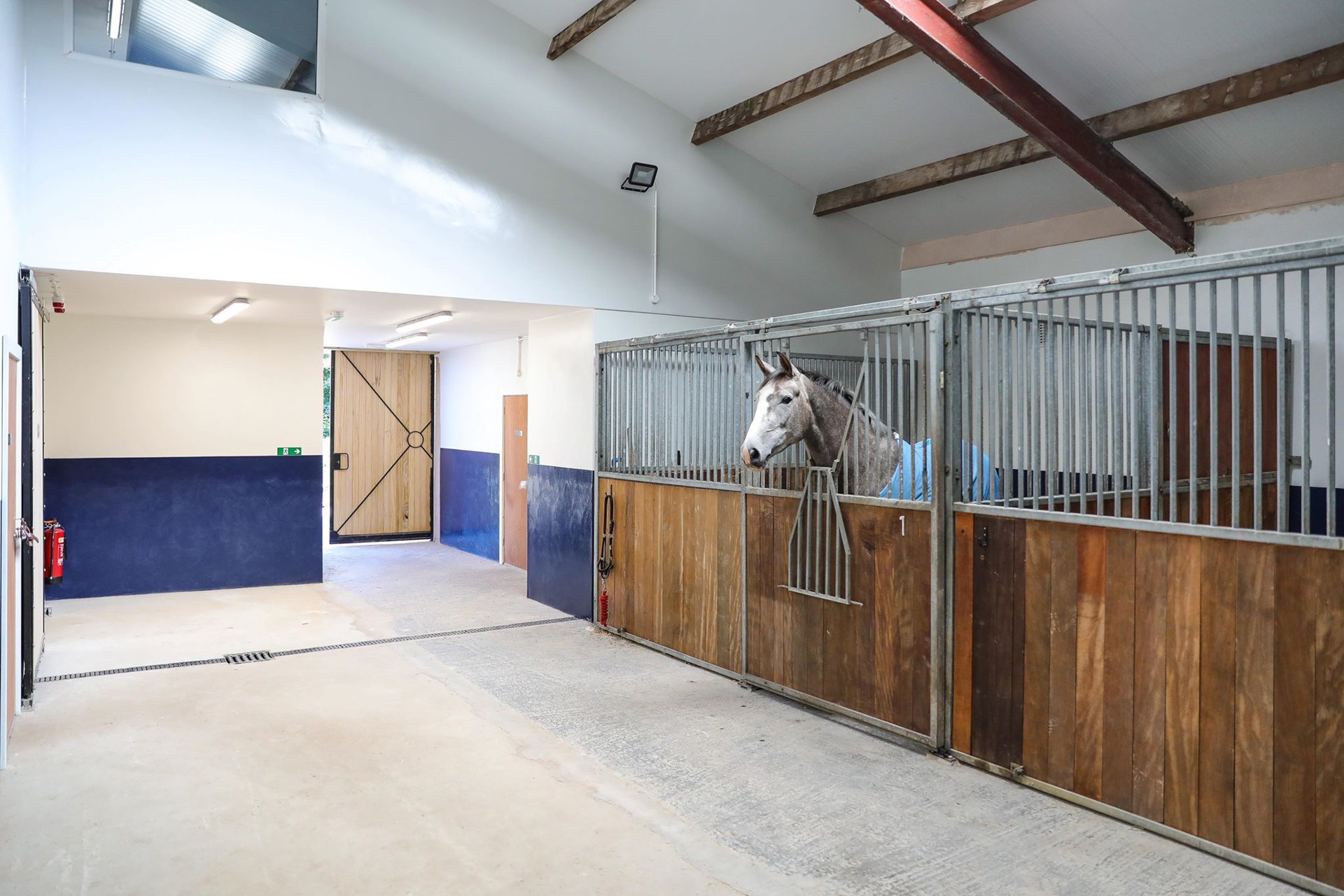
Bringing your horse to NWEV
Admission
On arrival once you have parked your vehicle, please close the main gates and report to reception before unloading your horse. Our nursing assistants will go through an admission form with you and admit your horse to the clinic.
Passports
With current legislation, all horses should have a passport. While we will not decline treatment of your horse if the passport is unavailable, we will treat your horse as though you have agreed that it will not be used for human consumption. It will be your responsibility to ensure Section 9 of your horse’s passport is completed when the passport becomes available.
Grooming
We would ask that you take particular care when grooming your horse prior to its visit to NWEV. It is important for the horses health and wellbeing that they are clean and mud free upon arrival. This will reduce the risk of future infection.
Shoes
All shoes need to be removed for any surgery being carried out under general anaesthesia. For lameness investigation it is worth noting the state of your horse’s shoes, as a loose or cast shoe could affect soundness in that limb and mask the other issues at hand.
Feed, Bedding & Rugs
Generally you do not need to bring food with you. , but please let us know if your horse has any special requirements.
We feed excellent quality hay or haylage depending on what you normally give them at home. All our stables are rubber matted and we use high quality dust extracted bedding. Please bring your horses own rug if necessary.
Visiting
You are welcome to visit your horse during its stay with us between 10.00 and 15.00 Monday to Friday or at a weekend by prior arrangement with the duty veterinary surgeon. For security reasons no visitors are allowed on the premises outwith our normal opening hours, except in an emergency or with prior arrangement.
Children and dogs present a real threat to the safety of both themselves and our inpatients. For this reason dogs are not allowed out of your vehicles under any circumstances and we ask that all children be kept under strict control. Although your children may be used to handling horses at home, experience suggests that in a busy, strange environment both children and horses behave differently.
Your horse’s medical details are of course confidential. Please respect the confidentiality and privacy of other owners and their horses.
Daily Update
We will normally phone you with a progress update at least daily if your horse is an inpatient with us. You are welcome to telephone to enquire about your horse’s progress. It is usually more convenient if you telephone after mid-morning, by which time your horse will have been reassessed by the veterinary surgeon and any treatments are likely to have been completed.
In addition to any specific veterinary and nursing treatments that your horse will receive, all inpatients are reassessed at least twice a day.
The veterinary surgeon dealing with your horse will welcome the chance of discussing the progress with you, but please understand that they may not be available immediately if you telephone or visit. However, we will return your telephone calls as soon as possible.
Overnight Care
At NWEV you can rest assured that all horses and ponies left under our care in the clinic are housed in a comfortable environment and are monitored and treated commensurate with the animal’s condition by persons with the requisite level of knowledge and expertise.
Before leaving your horse at the Practice you, as the owner or keeper, will be made aware of the level of supervision of your horse, particularly outside of normal working hours. Different levels of care required arise in different circumstances.
Discharge
We will keep in touch with you to give you prior warning of the likely day that your horse will be ready for discharge. Please tell us in advance of your expected arrival time so that we can have everything ready for you. A written discharge note will accompany your horse and will tell you what medicines, dressings and re-examinations are required. There should be an opportunity at the time of discharge to discuss these details.
Insurance
It is your responsibility, as owner, to notify your insurance company that the horse is undergoing treatment. As the requirements of the various companies differ please ensure that you keep your insurance company up to date and that you comply with their requirements. This is of particular importance if non-emergency general anaesthesia is to take place.
Cost & Payment
We will endeavour to produce an accurate estimate of costs on admission to the clinic if requested and keep you informed of your current balance each day. If you are aware of any exclusions on your insurance policy or if you are on a strict budget, then please discuss this with the veterinary surgeon dealing with your horse at the earliest opportunity.
Payment for all your horses treatment and medication during its stay at the clinic is due at the time of discharge. For insured horses we request payment of your policy excess at the time of discharge.
General
Should you have any reason to feel concerned or unhappy, please bring this immediately to our attention. Most importantly, we hope that your horse’s stay at the clinic is successful and as stress free as possible. You may rest assured that we will do all we can to ensure this.